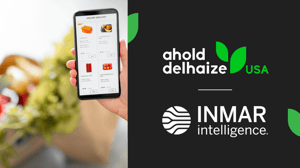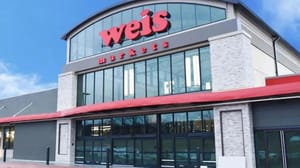Change Is Brewing in Single-Serve Beverages
The single-cup beverage market has been a boon to retailers, but an influx of new formats and beverage types will necessitate change at the shelf
August 27, 2012
The battle for share of the lucrative at-home brewing market is heating up faster than your morning cup of joe.
Amidst patent expirations, private-label introductions and innovations with milk-based pods and cold beverage types, the grocery category that was nonexistent just six years ago has evolved into a caffeine-infused free-for-all.
Sales of single-cup coffee have more than doubled in food, drug and mass outlets during the 52 weeks ending July 8, 2012, according to SymphonyIRI Group, and show no signs of slowing.
The market is poised to build on the momentum, as penetration is relatively low with just one in 10 U.S. households owning a single-cup coffee brewer, according to the National Coffee Association, New York.
Price is still a deterrent to ownership, as 36% of those who don’t drink single-cup coffee say the machines are too expensive, according to Mintel. And even Americans who’ve made the investment are finding the value equation not all it’s cracked up to be.
In fact, if sold per pound, coffee portioned into pods would cost about $80, noted Tom Pirko, president of BevMark Consulting.
“People are beginning to realize that you buy a machine and it seems so wonderful and so convenient since you don’t have to go out and buy a cup of coffee, but it’s not cheap,” he said.
True, single-cup brewers may save you a trip to Starbucks, and are cheaper than what you’d pay at the cafe, but drinkers are also missing out on the ambience — an occasion out, which in some cases justifies the premium, Pirko said.
“The original secret to Starbucks was not only coffee but the atmosphere and a place to, if only for a few moments, decompress. Yes, it’s less expensive at home but you’re sitting there by yourself. Some people cry in their beer, others cry in their coffee.”
Cost-conscious enthusiasts can dry their tears now that lower-priced pods have entered the scene.
Kroger Pods
Next month, Cincinnati-based Kroger Co. will debut coffee pods under its Private Selections and banner brands. The pods will be compatible with share-leading Keurig single-cup brewers and “possibly more” systems, according to spokesman Keith Dailey.
Up until now the retails of corporate brand K-Cups — the moniker assigned pods compatible with Keurig machines — may have been too high to fit the private-label model since they’ve required a licensing arrangement with Keurig. But that will change next month when patents held by Green Mountain Coffee Roasters on its Keurig brewers, which also affect compatible K-Cups, expire.
Safeway, Pleasanton, Calif., preempted the event with Keurig-compatible pods manufactured by Rogers Family Co. The Safeway Select “OneCups” that sell for $6.99 per 12-pack in Breakfast Blend, French Roast, Costa Rica, Hazelnut and Sumatra varieties, are not manufactured under a licensing agreement with Keurig, rather they leverage Rogers Family Co.’s proprietary technology, said founder Jon Rogers, who’s been approached by “many” other retailers with interest in creating a store-brand line.
The OneCup technology has also caught the attention of Keurig who is suing the private-label manufacturer for patent infringement. Rogers is aware of Keurig’s patents and maintains his OneCups are not the same.
“We don’t make me-too products,” he said. “Keurig uses plastic cups and we [portion] coffee in a little ball using filter material. We don’t have the costly cup so it’s cheaper, we appear to get much better infusion and there is less material going into the landfill.”
Keurig, meanwhile, has diversified its portfolio of offerings. While it still sees opportunity in the K-Cup format — which includes 200 varieties of 30 different owned and licensed brands — with the patents nearing expiration, it’s branched into a new direction.
“We’ve anticipated for some time that unlicensed brands and manufacturers will look to take some share of future single-serve packs and have factored this into our planning,” explained Tom Ferguson, vice president of sales strategy and trade management for specialty coffee at GMCR.
SN Poll: Do you plan to introduce private-label coffee pods for Keurig brewers?
Earlier this year, GMCR rolled out the Keurig Vue Brewing system, which incorporates attributes based on customer feedback. Keurig Vue can brew full-strength coffee in a larger size travel mug, and in addition to beverage strength, lets users adjust water temperature. What also sets the premium brewer apart is cost. Keurig Vue retails for $249 vs. the Keurig Classic Brewer sold in supermarkets for $119.99. Another major difference is cartridge compatibility. Keurig Vue works with new Vue packs, which are not interchangeable with K-Cups and won’t be available in food stores for the foreseeable future.
While there are no immediate plans to sell Vue packs in grocery stores, consistent with rollout plans from past launches, GMCR is focused on gaining critical mass with brewer penetration before expanding beyond online and specialty retail channels.
Brew-haha
Today there are about 10 million to 12 million Keurig brewers in U.S. homes, and about 90 million with traditional coffee makers. Of those possessing a single-cup system, 35% acquired it in the past six months, according to NCA.
GMCR is hoping to increase penetration of traditional and premium Keurig brewers while innovating the beverages compatible with these machines.
Earlier this summer it rolled out Vitamin Burst — the first iced fruit brew in a K-Cup pack. Keurig beverages are made with hot water so the K-Cup are brewed over a full cup of ice.
 A whole lineup of cold “E-Paks” is also on the horizon as Wal-Mart Stores, Bentonville, Ark., readies for the October launch of the first hot and cold beverage system from Esio Beverage Co. The Esio system is unlike traditional single-cup brewers in that it features a compressor to keep water in one tank cold. Another tank is heated to keep water hot.
A whole lineup of cold “E-Paks” is also on the horizon as Wal-Mart Stores, Bentonville, Ark., readies for the October launch of the first hot and cold beverage system from Esio Beverage Co. The Esio system is unlike traditional single-cup brewers in that it features a compressor to keep water in one tank cold. Another tank is heated to keep water hot.
As the exclusive distributor of the system for the initial launch, Wal-Mart will back the effort with video displays in its appliance departments, said Lyle Myers, president and co-founder of Esio Beverage Co.
Endcaps will feature Esio brewers for $199, and 28 SKUs of multi-serve E-Paks, which produce 14 8-ounce servings of beverage. Each 3-ounce E-Pak allows users to customize portion sizes to their preference, whether it is a cup or a pitcher.
E-Pak beverages include Crystal Light, Country Time Lemonade, V8 Splash, Apple & Eve juice drinks, China Mist teas, Sqwincher sports drinks, Esio’s Barista Bros. coffees and teas and Vita-24 fruit beverages.
The system will give way to a new grocery category, noted Myers.
“There really isn’t anything out there for the cold side that allows you to get your cold beverages at the touch of a button,” he said.
E-Paks will roll out to the grocery channel in 2013, with the average costing about $5.99, or 43 cents per serving. Esio anticipates producing store brands for food retailers.
“The grocery industry is a big part of our retail strategy,” Myers said.
Food retailers stand to benefit from incremental sales surrounding the influx of new pod brands and types, but in order to optimize profits they’ll have to make things easy for consumers, Pirko said.
“There are people who have trouble manipulating their manual can opener so anything that requires them to figure out how to match technologies, sizes and brands can be an issue,” he said.
Complicating matters is the fact that Starbucks is throwing its hat into the single-cup ring with its Verismo system, which crafts beverages from lattes to americanos, and brewed coffee, one cup at a time.
The machine differs from traditional single-cup brewers in that it’s designed to make espresso drinks using high pressure and is equipped to handle milk-based pods.
“We now have the opportunity to reach millions of customers who have been looking and waiting for a uniquely Starbucks solution with a coffee quality, taste, roast variety and design sensibility that is consistent with Starbucks brand,” said Jeff Hansberry, president of channel development for Starbucks, in a statement.
SN Blog: Single-Serve Coffee Hits Seasonal Stride
Through a partnership with Krueger GmbH & Co. KG, Starbucks will market the machines and Starbucks-sourced 100% Arabica coffee and milk pods beginning this fall online and at select Starbucks cafes and specialty retailers.
Espresso and brewed coffee pods will initially be available in a range of roast spectrums, along with a variety of milk pods, but there are no immediate plans to sell the pods in the grocery channel alongside Starbucks K-Cup packs.
While compatible with Keurig brewers as part of a licensing agreement with GMCR, Starbucks K-Cup packs will not work with the Verismo system.
Starbucks single-cup coffee is the No. 3 brand behind Green Mountain and Folgers Gourmet Selections in food, drug and mass outlets, according to SymphonyIRI Group. The coffee maker plans to continue offering, and even expand, its Starbucks coffee and Tazo teas in the K-Cup format.
About the Author
You May Also Like








